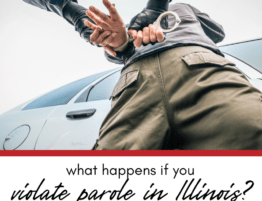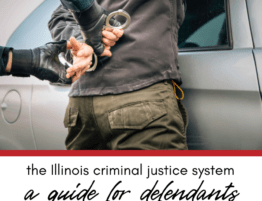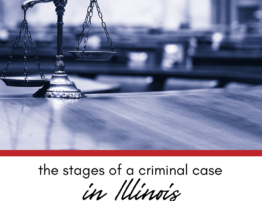
If you’re like many people, you’ve heard all the common myths and misconceptions about Miranda rights… and one of the first is that they’re rights. Police read you a Miranda warning when they’re placing you under arrest.
The U.S. Constitution affords you certain rights—particularly the Fifth Amendment—that include your right not to incriminate yourself and your right to due process of law.
The Fifth Amendment says:
“No person shall be held to answer for a capital, or otherwise infamous crime, unless on a presentment or indictment of a grand jury, except in cases arising in the land or naval forces, or in the militia, when in actual service in time of war or public danger; nor shall any person be subject for the same offense to be twice put in jeopardy of life or limb; nor shall be compelled in any criminal case to be a witness against himself, nor be deprived of life, liberty, or property, without due process of law; nor shall private property be taken for public use, without just compensation.”
So what does that have to do with Miranda warnings?
What is a Miranda Warning?
You hear it on every cop-related television show: “You have the right to remain silent. Anything you say can and will be used against you in a court of law.” However, you often see police reciting the Miranda warning as soon as someone is in cuffs (and on fictional television shows, the police often recite the Miranda warning as they’re putting a suspect in cuffs, or even before).
In real life, that’s not always the case; police don’t necessarily have to “read you your rights” as soon as they arrest you.
The Miranda warning resulted from a Supreme Court case, and now police must use it to remind suspects that they have the right to remain silent (avoid incriminating themselves) and that they have the right to an attorney.
Common Myths About Miranda Rights
Thanks to reality TV and crime dramas, there are plenty of misconceptions about the Miranda warning and what rights suspects have under the law.
Myth #1: Police have to read you your rights or your case will be dismissed.
Police don’t have to read you your rights unless you’re in custody and they’re questioning you. If the police ask you to come down to the station where they ask you questions, or if they chat with you on the street but tell you that you’re free to leave, that’s a non-custodial interrogation. That means you’re still making an official statement to police—and they can still use your statements against you in court. They don’t have to read you the Miranda warning at all, because you’re not in police custody (remember, they told you that you’re free to leave).
Myth #2: You have to talk to police after they read you the Miranda warning.
You don’t have to talk to police at all, whether you’re under arrest or free to leave. In reality, all you need to say is, “I don’t want to answer any questions. I want a lawyer.” Even if police keep trying to ask you questions, your best bet (even if you’re innocent) is to politely let them know that you don’t want to answer any questions and that you want to speak with an attorney. You always have the right to a lawyer who can advise you of your rights!
Do You Need a Criminal Defense Lawyer in Chicago?
If police suspect you of a crime, or if you’ve been arrested and don’t know where to turn, call us at 847-920-4540 or get in touch with us online. We’ll be happy to explain your rights and evaluate your case—and the sooner you call us, the sooner we can begin developing a strategy that gets you the best possible outcome in your case.










Write a comment: